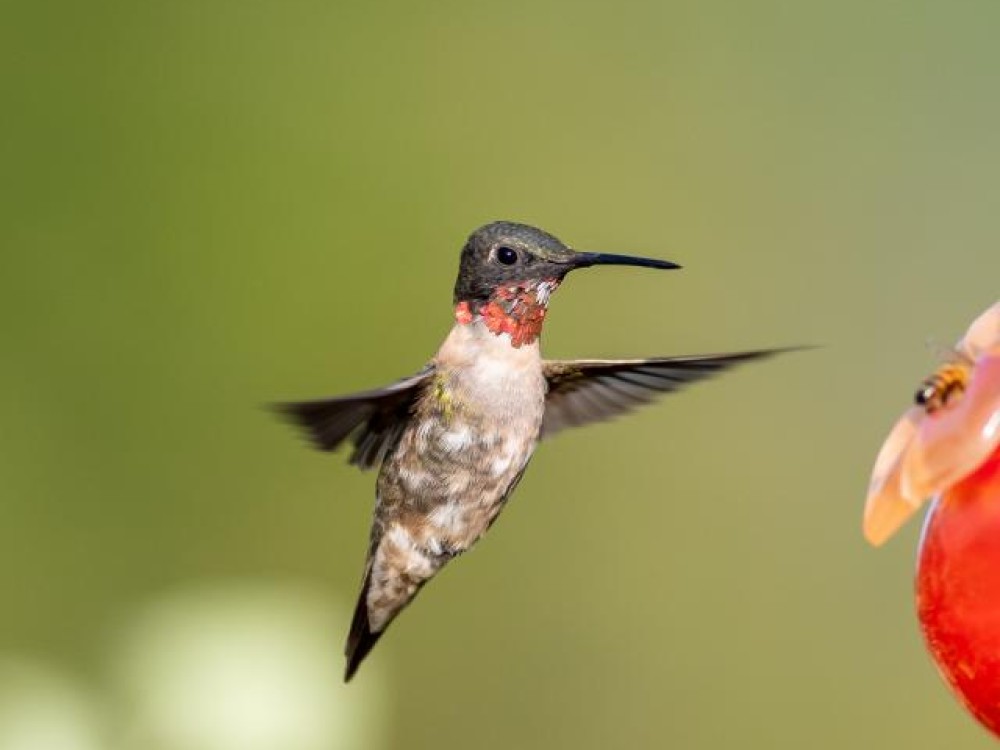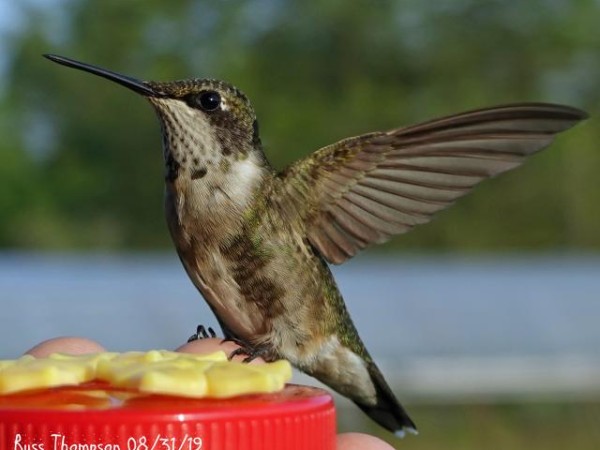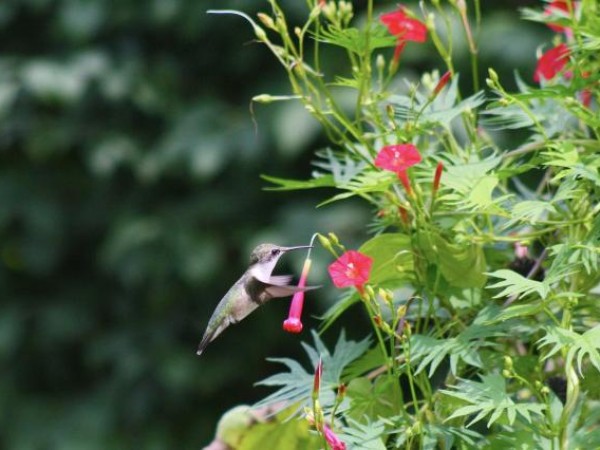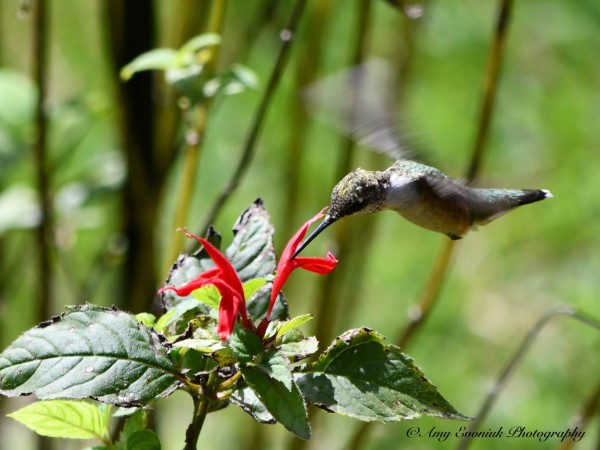Stop and Go
Clusters of Sightings Interior Mid-Atlantic and Southern U.S. States
Hummers are on the move. Adult males are scarce in the north. The northernmost Ruby-throated hummingbird was reported in Montreal, Quebec. Highest numbers of reports are coming in from Georgia and Texas. Other states with high reporting have been Kentucky, Oklahoma, Alabama, and Arkansas.
From Montréal, QC: WIDO lamented, "Probably the last sighting of fall 2019. (09/08/2019)
From Louisville, KY: Russ noted, "I am seeing a few adult males as of today - 09/05/2019. The shared photo is a juvenile male Ruby-throated sitting on my finger for a quick snack - 08/31/2019." (09/05/2019)
Stopover Sites and Survival
Thirsty, hungry and tired. In strange settings and unfamiliar places, our tiny travels must find everything they need for survival. They may only visit briefly; an hour or two can make a life or death difference. Migration is a perilous time of life. Migrating hummingbirds must continue to find food and nectar to fuel their flights to non-breeding areas in Mexio and Central America.
How do hummers decide where to stop? Which resources are important? How long do they stay? Scientists study stopover ecology to answer questions like these. High quality stopover sites are critical for successful migration.
From West Chester, PA: Katy observed, "Several females/possibly juveniles still remain at feeders and flowers. Active from sunrise to sunset." (09/08/2019)
From Osseo, MN: Anthony noted, "A raspberry-wine monarda pit stop!" (09/08/2019)
Welcome Hungry Travelers
Take a tour of your neighborhood with the eyes of a migrating hummingbird. Can you identify welcoming stopover sites where hungry hummers can rest and refuel?
What You Can Do
- Continue to report your hummingbird observations.
- Continue to maintain your hummingbird feeders until temperatures drop below freezing.
- Continue to nurture your pollinator gardens. Next year, consider planting brightly-colored native flowers with long tube shapes. Remember hummingbirds are attracted to the bright colors not smell. Follow this link to just a few planting suggestions: Photo Gallery of Fall Nectar Sources





